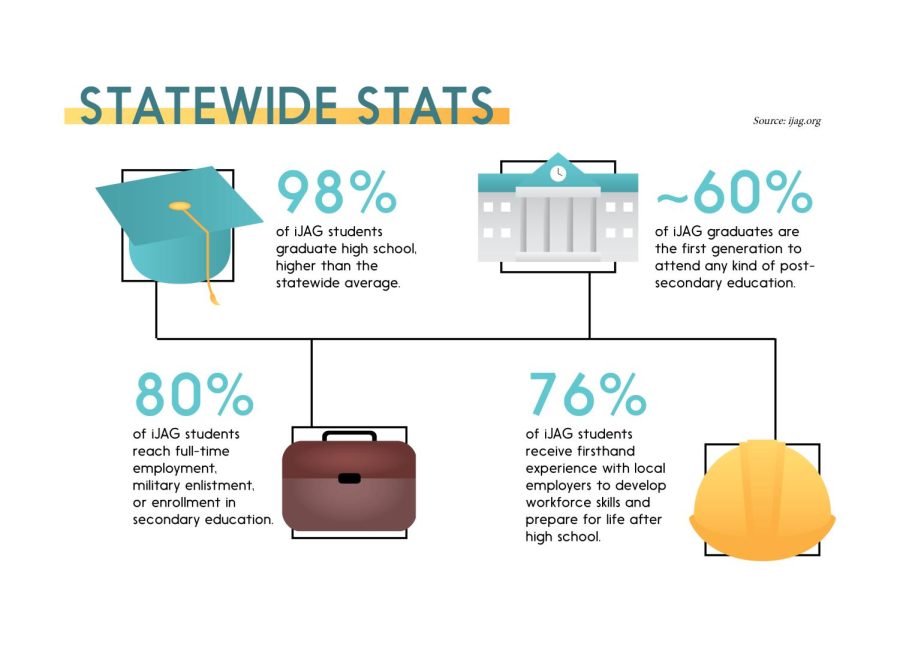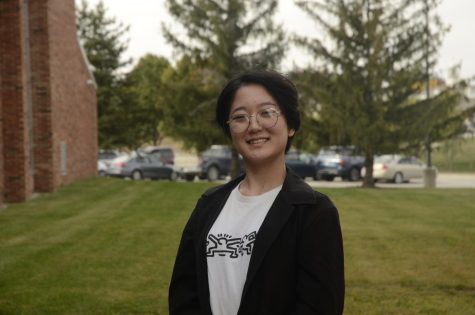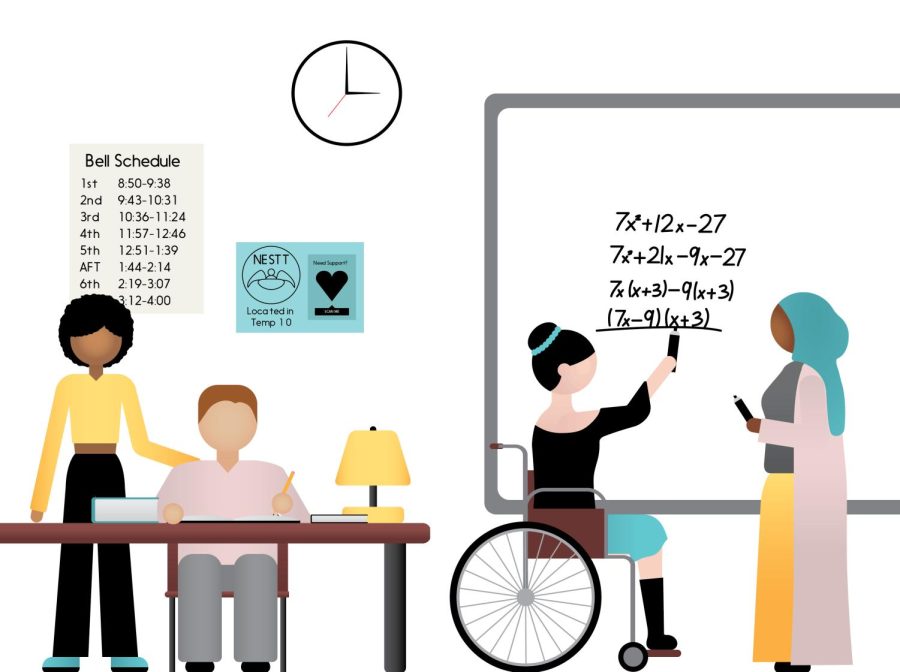Opening opportunities
iJAG is a class designed to help students look toward the future and prepare for life after high school.
As graduation grows closer by the day, juniors and seniors may find themselves needing guidance in what they want to do after high school. With societal pressure to make the decision early, the task may become all the more daunting. To help students navigate this process, Iowa Jobs for American Graduates, or iJAG, provides a learning environment designed to make the transition to adulthood easier.
iJAG is a year-long elective that students apply and interview for. The class covers core topics in work, school and life success by connecting students to community service opportunities and employers in the area. Instead of following a traditional classroom structure, iJAG takes a more personalized one-on-one approach to meet every student’s individual needs.
West High Education Specialist and iJAG teacher Shenika McGill notes the benefits and importance of direct engagement with students, providing them with in-depth support.
“When I was kid, you sat in some rows in a classroom, and then there’s the teacher who’s the head of the class, and you’re just supposed to sit there and listen for the most part,” McGill said. “But there also has to be some type of balance, and so we’re there for support. We apply the ACEs model, Adverse Childhood Experiences, to engage with our students.”
All iJAG teachers are trained in the ACEs model, which acknowledges any childhood adversities or traumatic events that may make it difficult to participate in a traditional classroom setting.
“What we do is provide additional support to overcoming barriers, real or perceived, as far as getting through traditional class coursework, and then we strategically expose the kids to things outside the classroom setting — for example, job shadows,” McGill said.
iJAG teachers aim to personalize the curriculum around what specific students need to excel at West and after graduation. To help form this curriculum, teachers get to know each student on a deeper level.
“It’s almost like when you go to the hair salon and you just start talking to your beautician and you’re engaging. They’re the support, it’s more than just getting your hair done. It’s an interaction, right? [There’s] a relationship-building component to that,” McGill said. “That may not always be true in a traditional classroom setting.”
Students join iJAG for all kinds of different reasons to learn about various post-high school opportunities. However, students may not be informed about what the class really/actually is. Heisy Ayala ’23, a student in iJAG, addresses the stereotypes associated with the class.
“I feel like people think that you have to be non-white to get in there, or that it’s basically mostly for troubled kids when that really isn’t the case,” Ayala said. “In reality, it’s just a bunch of kids just wanting to learn [about] jobs outside of going to college, or just wanting help with college.”

One way iJAG helps students figure out their path is by providing early connections to different lines of work in the community. Ayala finds value in having more in-depth interactions with various professionals.
“[We had] firefighters come in and talk about their jobs,” Ayala said. “It kind of just helps to know what they do, how they do it and talk to them on a personal level, more than like when a school brings them [in]. With iJAG, you get to have that one-on-one.”
By engaging in various career options, students get a better sense of what future best suits them, whether it be college, the military or entering the workforce.
“[iJAG] taught me that even if I don’t want to pursue college, there are still opportunities outside of college, like maybe just [going] into the workforce instantly,” Ayala said.
McGill understands the potential pressure to attend college immediately after high school and wants students to learn about all possible alternatives.
“Usually people think, ‘Well, right after high school is college, but I don’t want to go to college.’ They don’t realize that there are many countless opportunities and resources out there that extend beyond college or military,” McGill said.
One example is AmeriCorps, a federal agency that works with and funds organizations to create a positive impact and strengthen communities across the country. McGill describes how the AmeriCorps program, which helps with education, disaster relief, environmental conservation and more, is an example of an opportunity for post-secondary students.
“After you do your one year of service you get a monthly stipend, and depending on where your host site is, medical benefits. A lot of people say, ‘Well, I don’t really want to go to college right away, but I don’t want to really work 40 hours a week.’ Well, something like AmeriCorps would be an option.” McGill said.
When these countless post-secondary options become overwhelming, iJAG helps to alleviate the stress and give students a better idea of what they want to do next. For those interested in discovering a wide array of career options or want extra guidance, iJAG is looking to recruit more students for the 2023-24 school year.
Your donation will support the student journalists of West High School. Your contribution will allow us to purchase Scholarship Yearbooks, newsroom equipment and cover our annual website hosting costs.

(she/they) Sachiko is a senior at West, and this will be their 3rd year on staff. She is a design editor and photographer for the print publication. In...



